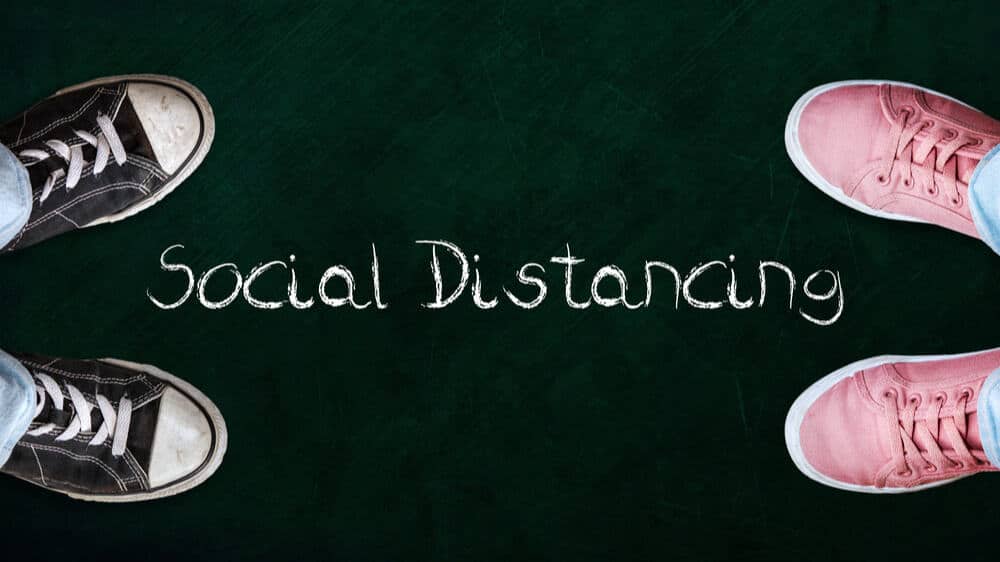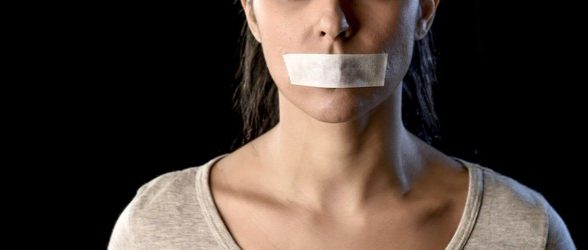I’m Autistic. Here’s Why I Think Social Distancing Should Be Respected, Regardless of COVID-19
The following post is part of our series on perspectives from disabled and chronically ill people regarding COVID-19.
I am an autistic woman. I am also touch-averse.
I have been touch-averse for as long as I can remember. I have sensory-processing disorder, which often goes along with autism. It’s hard to describe to people who don’t have it, but it feels like all five of my senses are amplified. I am distracted by sounds that other people can tune out. I never get used to the tags on my clothing. Human touch reverberates throughout my body and overwhelms me.
Sensory-processing disorder affects my everyday life. I cringe even when close friends try to hug me. Business networking is brutal when I’m forced to shake hands with strangers. I hyper-focus on all the things their hands could have touched before mine. Because I have trouble reading people, I’m more comfortable keeping physical distance between myself and others so if they do something unexpected, I can be prepared.
People who don’t understand me think I’m weird. They think I’m rude because I’m not welcoming of touch, especially from strangers. In order to pass and make my way up the social hierarchy, I must forget any concept of my preferred personal space. The ramifications of not doing so cost me relationships and jobs.
The CDC has recommended that people stay at least six feet apart and practice social distancing to limit the spread of COVID-19. Easy enough, I thought. I do it all the time.
But why does it take a pandemic for people to finally understand and respect my choice to keep personal space? It’s not just me, but other people with conditions like OCD and those who have survived trauma. I feel cheated in a sense. After a lifetime of being forced to mask my aversion to touch, people are suddenly welcoming towards the idea of social distancing. Where was this acceptance before?
COVID-19 has created a weird time for us, because this is essentially the first time we can finally relax and distance ourselves the way we want to. No longer is anyone telling us that we wash our hands too frequently or that we should stand closer to our conversational partners. In fact, we’re even being praised for the same behaviors we were once shamed for. We’re told we’re following rules well and doing the right thing.
It has oddly been easier to maintain friendships during quarantine. The social norms that exist around how to greet friends no longer include hugs. My good friends have come to accept my dislike for hugs, but I come across as standoffish to new acquaintances. I think that’s why virtual connection has especially helped in my college courses. I’m able to focus on talking to new classmates rather than fixating on how close to me they’re sitting.
I have a right to my own body. I’m not rude or emotionally broken for prioritizing my own mental health. My choices should be respected. I want the same understanding towards social distancing to be extended after the COVID-19 pandemic.
About Rooted In Rights
Rooted in Rights exists to amplify the perspectives of the disability community. Blog posts and storyteller videos that we publish and content we re-share on social media do not necessarily reflect the opinions or values of Rooted in Rights nor indicate an endorsement of a program or service by Rooted in Rights. We respect and aim to reflect the diversity of opinions and experiences of the disability community. Rooted in Rights seeks to highlight discussions, not direct them. Learn more about Rooted In Rights



